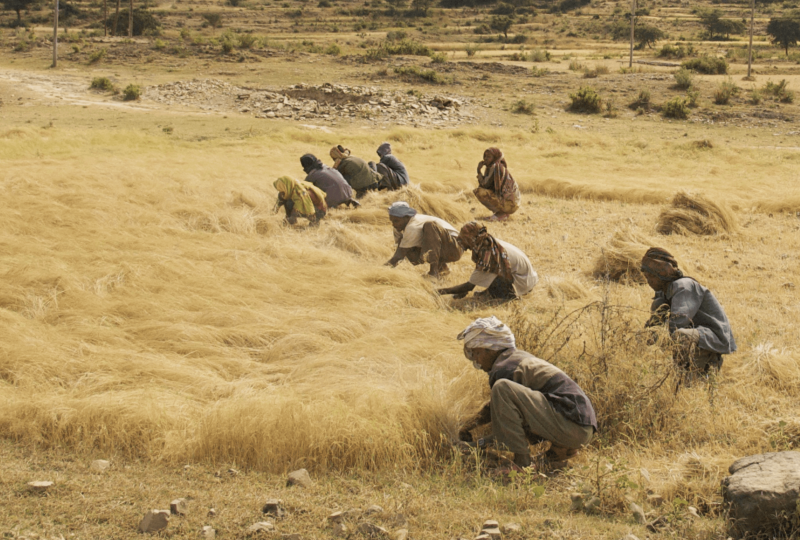Maximizing cereal crops yields in sub-Saharan Africa would still fail to meet the region’s skyrocketing grain demand by 2050, according to a new study from the University of Nebraska-Lincoln, Wageningen University and multiple African institutions.
Sub-Saharan Africa produces about 80 percent of the grain it now consumes. But that consumption could triple if its population rises an expected 250 percent by 2050….
Even if sub-Saharan yields continue rising at the rate they have over the last quarter-century, the region’s existing farmland would still produce only between a third and half of the grain needed in 2050, researchers reported Dec. 12 in Proceedings of the National Academy of Sciences.
. . . .
“…[O]ur analysis shows that even closing the gap between potential yields using modern farming practices and current farm yields, with traditional crop varieties and little fertilizer, still leaves the area at a deficit with regard to cereals,” [co-author Ken Cassman] said. …
. . . .
A failure to upgrade could force sub-Saharan Africa to transform savannahs, rainforests or other natural ecosystems into farmland – a process, the study noted, that would produce massive amounts of greenhouse gases while shrinking the habitats of native plant and animal species.
The GLP aggregated and excerpted this blog/article to reflect the diversity of news, opinion and analysis. Read full, original post: Even with maximized yields, sub-Saharan Africa won’t grow enough grain in 2050































